 There are many choices when it comes to types of brake pads and friction materials. Generally, what you want are brake pads that are equivalent to original equipment as these brake pads are what the vehicle’s manufacturer recommends. However, it’s no secret that original equipment parts can be quite costly. Fortunately, there are many aftermarket brake parts companies which offer OEM equivalent or premium grade brake pads that may perform just as well, if not better than stock and at a better price point. This article is geared towards helping you identify and choose a brake pad that best suit your driving.
There are many choices when it comes to types of brake pads and friction materials. Generally, what you want are brake pads that are equivalent to original equipment as these brake pads are what the vehicle’s manufacturer recommends. However, it’s no secret that original equipment parts can be quite costly. Fortunately, there are many aftermarket brake parts companies which offer OEM equivalent or premium grade brake pads that may perform just as well, if not better than stock and at a better price point. This article is geared towards helping you identify and choose a brake pad that best suit your driving.
What are your options?
As mentioned earlier, there are many different types of brake pads: there are economy aftermarket brake pads, standard aftermarket brake pads, premium aftermarket...
Read More


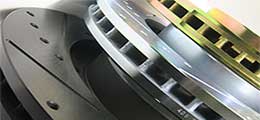
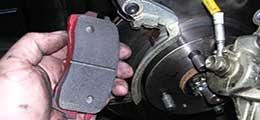
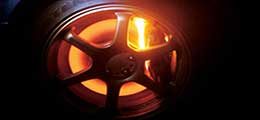
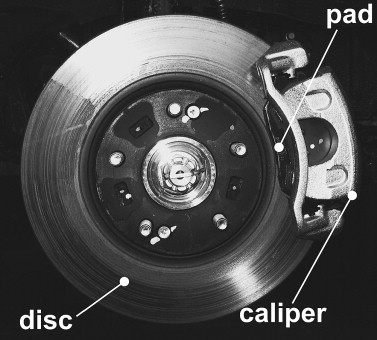 Disc brake drag is when your brakes fail to release completely after you have removed your foot from the brake pedal. As you may already know, the continuous use of your brakes may cause them to overheat—brake drag is problematic because the brakes would remain applied which results in overheating and damaged parts. Let us begin by mentioning that a little brake drag is normal and brake pads and rotors are usually in slight contact. If you were to spin your wheel, the wheel should be able to partly turn on its own. If the wheel does not spin and there is a lot of turning resistance, then there may be more brake drag present than you want. One main cause of disc brake drag involves the brake calipers.
Disc brake drag is when your brakes fail to release completely after you have removed your foot from the brake pedal. As you may already know, the continuous use of your brakes may cause them to overheat—brake drag is problematic because the brakes would remain applied which results in overheating and damaged parts. Let us begin by mentioning that a little brake drag is normal and brake pads and rotors are usually in slight contact. If you were to spin your wheel, the wheel should be able to partly turn on its own. If the wheel does not spin and there is a lot of turning resistance, then there may be more brake drag present than you want. One main cause of disc brake drag involves the brake calipers.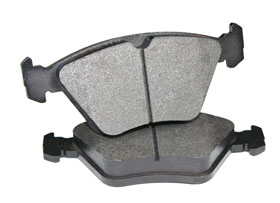
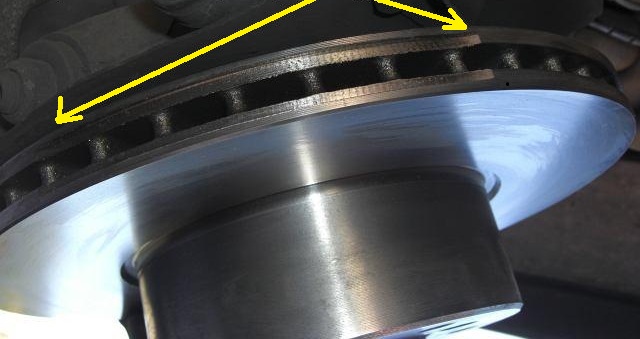 Why is there an indentation or “cut” on the side of my brake rotors? Some brake rotors have what appears to be an indentation or piece of the rotor material removed from the edges, similar to the photo on the right. In any case, this "cut" on the side of the brake rotor is actually meant to reduce something known as rotating unbalance. People may ask the question above or even claim their brake rotor is irregular or damaged altogether. In actuality, this characteristic about the rotor does not mean there is anything wrong with the rotor, but that the part was balanced or mill balanced.
Why is there an indentation or “cut” on the side of my brake rotors? Some brake rotors have what appears to be an indentation or piece of the rotor material removed from the edges, similar to the photo on the right. In any case, this "cut" on the side of the brake rotor is actually meant to reduce something known as rotating unbalance. People may ask the question above or even claim their brake rotor is irregular or damaged altogether. In actuality, this characteristic about the rotor does not mean there is anything wrong with the rotor, but that the part was balanced or mill balanced. 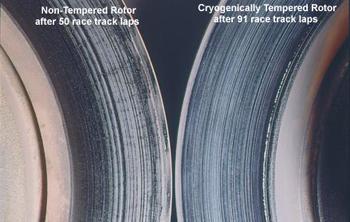 Advancements in technology has allowed for numerous methods to be introduced for improved braking performance. Such methods have been mentioned in previous blog articles: vented rotors, slotted or cross drilled rotors and other rotor types. All of these are an effort to eliminate or alleviate excessive heat build-up and overheating of the brake discs or rotors.
Advancements in technology has allowed for numerous methods to be introduced for improved braking performance. Such methods have been mentioned in previous blog articles: vented rotors, slotted or cross drilled rotors and other rotor types. All of these are an effort to eliminate or alleviate excessive heat build-up and overheating of the brake discs or rotors. 
